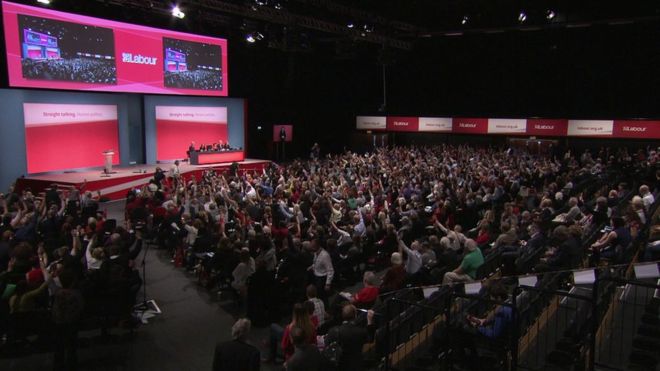Put free movement on the Labour Conference agenda with our Contemporary Resolution
Posted: 12 August 2017
Put free movement on the Labour Conference agenda with our Contemporary Resolution
Labour Party Conference – our movement’s chance to debate the issues facing us today and decide the way forward for our party – is fast approaching. We want this year’s conference to commit our party to defending migrant rights, and defending and extending the right to freedom of movement.
To help us make that happen, we need as many constituency parties (CLPs) to submit the Contemporary Resolution below to conference. That’s where you come in!
“Contemporary resolutions” must relate to an issue that has come up after August 3rd, and they have to be no more than 250 words, plus 10 words for the title. They must be passed through CLPs and submitted by 14 September (your CLP Chair/Secretary should have information about how to make the submission). Passing this motion is our main way of getting a debate and a vote at conference on the issue of free movement this year.
There are 3 ways to get your CLP to submit it:
- if your CLP is small and meets all together without delegates, you can submit it directly.
- if your CLP has a General Committee and meets in wards/branches, you need to submit it to your ward/branch
- affiliated unions can submit motions to CLPs
As well as submitting this contemporary resolution, there are lots of other ways to help the campaign, including gathering support for our statement online and on paper at Labour movement event and passing our model motion aimed specifically at branches and local parties.
Migration and free movement: an agenda of hope and solidarity
Conference notes the free movement debate. On 16 August the Government’s Northern Ireland position paper showed difficulties in restricting free movement in Northern Ireland. On 24 August, ONS reported EU migration had fallen by 51,000. On 26 August, Labour proposed a transitional Brexit deal, including free movement
Stagnating wages, crumbling services and the housing crisis were caused by government and employers making the rich richer at working people’s expense – not immigration.
We need massive public funding to ensure good jobs, homes, services and benefits for all; scrapping of anti-union laws and stronger rights so workers can push up wages and conditions; and communities uniting across divisions to win changes.
Labour is the party of all workers, regardless of where they were born. We note many struggles where migrants have been central to improving low-paid workers’ wages and rights, like the recent victorious cleaners’ campaign at LSE.
Free movement benefits all workers. Without it, migrants are more vulnerable to hyper-exploitation, making downward pressure on wages more likely. Limiting it would damage the economy and hit living standards.
Britain and the EU should welcome migration across Europe and from beyond.
In government, we should maintain and extend free movement; scrap the net migration target; strengthen refugee rights; dismantle the brutal anti-migrant regime built over decades; abolish immigration detention centres; ensure the right to family reunion; end use of “no recourse to public funds”; end use of landlords and health workers as border guards; and reverse attacks on migrants’ access to the NHS.
